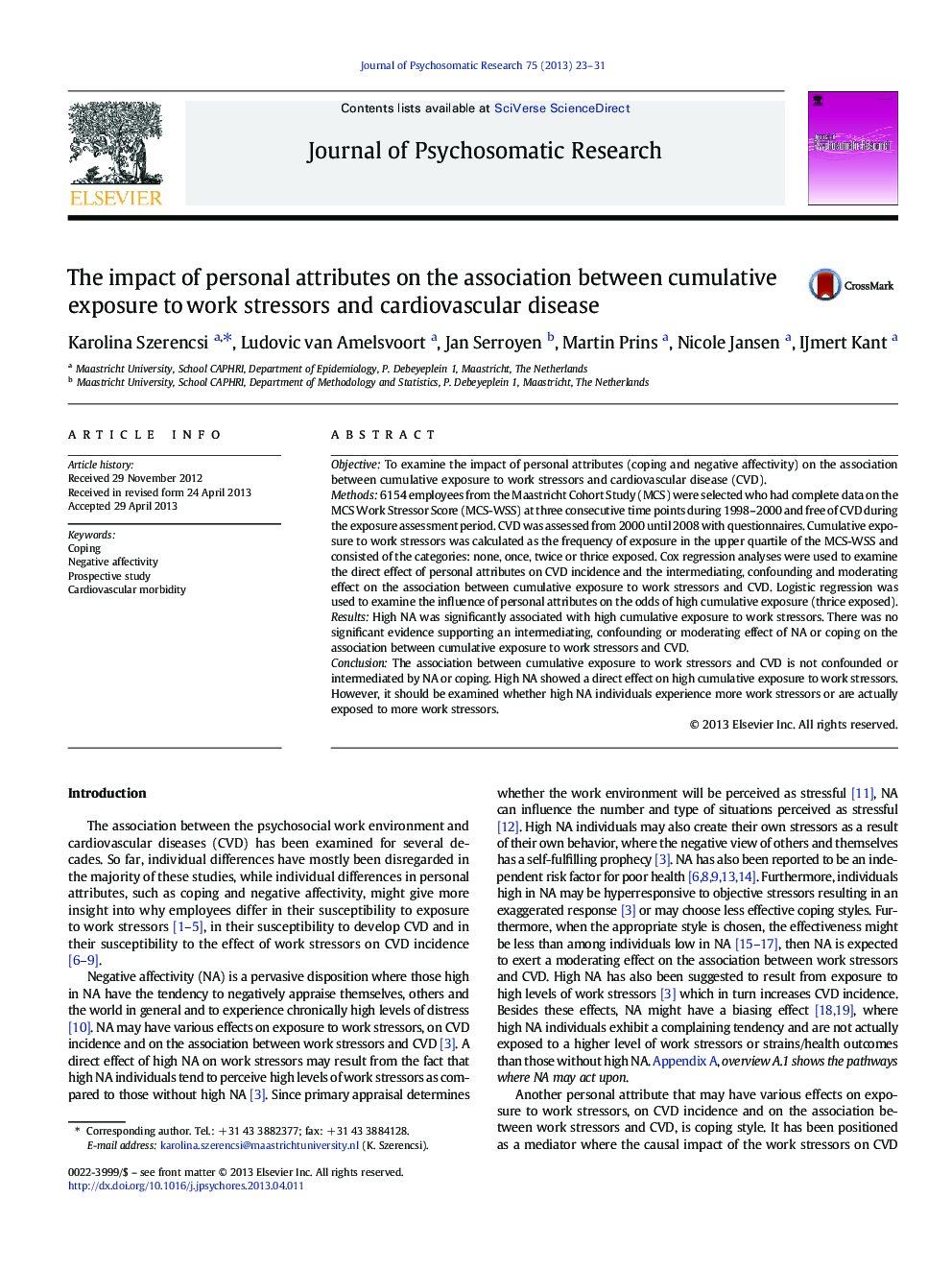| Article ID | Journal | Published Year | Pages | File Type |
|---|---|---|---|---|
| 949637 | Journal of Psychosomatic Research | 2013 | 9 Pages |
ObjectiveTo examine the impact of personal attributes (coping and negative affectivity) on the association between cumulative exposure to work stressors and cardiovascular disease (CVD).Methods6154 employees from the Maastricht Cohort Study (MCS) were selected who had complete data on the MCS Work Stressor Score (MCS-WSS) at three consecutive time points during 1998–2000 and free of CVD during the exposure assessment period. CVD was assessed from 2000 until 2008 with questionnaires. Cumulative exposure to work stressors was calculated as the frequency of exposure in the upper quartile of the MCS-WSS and consisted of the categories: none, once, twice or thrice exposed. Cox regression analyses were used to examine the direct effect of personal attributes on CVD incidence and the intermediating, confounding and moderating effect on the association between cumulative exposure to work stressors and CVD. Logistic regression was used to examine the influence of personal attributes on the odds of high cumulative exposure (thrice exposed).ResultsHigh NA was significantly associated with high cumulative exposure to work stressors. There was no significant evidence supporting an intermediating, confounding or moderating effect of NA or coping on the association between cumulative exposure to work stressors and CVD.ConclusionThe association between cumulative exposure to work stressors and CVD is not confounded or intermediated by NA or coping. High NA showed a direct effect on high cumulative exposure to work stressors. However, it should be examined whether high NA individuals experience more work stressors or are actually exposed to more work stressors.
